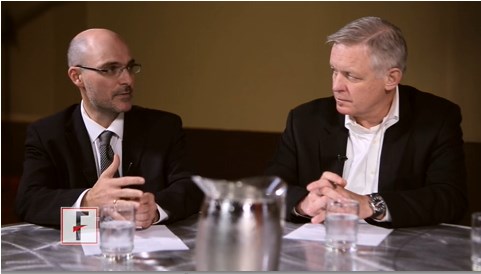User login
SAN ANTONIO – A panel that included a breast surgeon, a medical oncologist, and a patient advocate met at the San Antonio Breast Cancer Symposium to discuss emerging research on the link between anesthesia and cancer recurrence. The issue was first raised following publication of a retrospective study in 2006, which showed a 40% reduction in recurrence in women given a type of regional anesthesia, with general anesthesia, rather than general anesthesia and postoperative morphine anesthesia during primary breast cancer surgery.
Dr. William J. Gradishar, Betsy Bramsen Professor of Breast Oncology at Northwestern University, Chicago, moderated the discussion with Dr. Juan Cata, assistant professor in the department of anesthesiology and perioperative medicine at the University of Texas MD Anderson Cancer Center, Dr. Susan Love, breast surgeon, and president and medical director of the Dr. Susan Love Research Foundation, and Musa Mayer, author and patient advocate.
The panel addressed the impact of surgery alone, anesthesia during surgery, and perioperative analgesics on patients’ immune functioning and ultimately disease outcomes. The state of the evidence in breast cancer and other tumor types, and an ongoing prospective trial with breast cancer patients, were also discussed.
The video associated with this article is no longer available on this site. Please view all of our videos on the MDedge YouTube channel
lnikolaides@frontlinemedcom.com
On Twitter @nikolaideslaura
SAN ANTONIO – A panel that included a breast surgeon, a medical oncologist, and a patient advocate met at the San Antonio Breast Cancer Symposium to discuss emerging research on the link between anesthesia and cancer recurrence. The issue was first raised following publication of a retrospective study in 2006, which showed a 40% reduction in recurrence in women given a type of regional anesthesia, with general anesthesia, rather than general anesthesia and postoperative morphine anesthesia during primary breast cancer surgery.
Dr. William J. Gradishar, Betsy Bramsen Professor of Breast Oncology at Northwestern University, Chicago, moderated the discussion with Dr. Juan Cata, assistant professor in the department of anesthesiology and perioperative medicine at the University of Texas MD Anderson Cancer Center, Dr. Susan Love, breast surgeon, and president and medical director of the Dr. Susan Love Research Foundation, and Musa Mayer, author and patient advocate.
The panel addressed the impact of surgery alone, anesthesia during surgery, and perioperative analgesics on patients’ immune functioning and ultimately disease outcomes. The state of the evidence in breast cancer and other tumor types, and an ongoing prospective trial with breast cancer patients, were also discussed.
The video associated with this article is no longer available on this site. Please view all of our videos on the MDedge YouTube channel
lnikolaides@frontlinemedcom.com
On Twitter @nikolaideslaura
SAN ANTONIO – A panel that included a breast surgeon, a medical oncologist, and a patient advocate met at the San Antonio Breast Cancer Symposium to discuss emerging research on the link between anesthesia and cancer recurrence. The issue was first raised following publication of a retrospective study in 2006, which showed a 40% reduction in recurrence in women given a type of regional anesthesia, with general anesthesia, rather than general anesthesia and postoperative morphine anesthesia during primary breast cancer surgery.
Dr. William J. Gradishar, Betsy Bramsen Professor of Breast Oncology at Northwestern University, Chicago, moderated the discussion with Dr. Juan Cata, assistant professor in the department of anesthesiology and perioperative medicine at the University of Texas MD Anderson Cancer Center, Dr. Susan Love, breast surgeon, and president and medical director of the Dr. Susan Love Research Foundation, and Musa Mayer, author and patient advocate.
The panel addressed the impact of surgery alone, anesthesia during surgery, and perioperative analgesics on patients’ immune functioning and ultimately disease outcomes. The state of the evidence in breast cancer and other tumor types, and an ongoing prospective trial with breast cancer patients, were also discussed.
The video associated with this article is no longer available on this site. Please view all of our videos on the MDedge YouTube channel
lnikolaides@frontlinemedcom.com
On Twitter @nikolaideslaura
AT SABCS 2014
